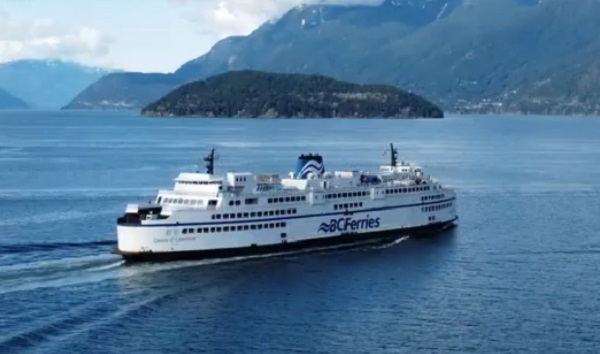Alberta
Albertans endure some of the longest health-care waits in Canada
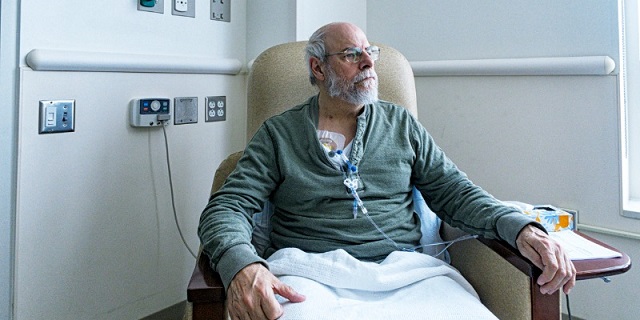
From the Fraser Institute
By Mackenzie Moir and Tegan Hill
Alberta’s long wait times come despite high levels of health-care spending. The province ranked second-highest on health-care spending per person (adjusted for age and sex) among provinces in 2021
Last week, the president of the Alberta Medical Association sounded the alarm about Alberta hospital wait times, saying they’re as “as bad as we’ve seen it in 25 years.”
But in fact, it’s worse than that.
According to a new study, in Alberta the median wait in 2023 between a family doctor’s referral for a specialist appointment and receipt of treatment was 33.5 weeks—that’s the longest total median wait outside the Maritime provinces and almost six weeks longer than the national median wait (27.7 weeks). And Albertans now wait 23 weeks longer than they did in 1993 when the wait for care was only 10.5 weeks.
Alberta’s long wait times come despite high levels of health-care spending. The province ranked second-highest on health-care spending per person (adjusted for age and sex) among provinces in 2021, the latest year of available data. In 2023/24, health-care spending will consume a projected 41.2 per cent of Alberta’s program spending.
Moreover, Canada itself is a relatively high spender among universal health-care countries, yet ranks poorly on the availability of hospital beds, doctors and key diagnostic technologies such as MRIs. In other words, Alberta is a comparatively high spender and poor performer in an already high spending and poorly performing country.
Of course, there are serious consequences from lengthy delays for medically necessary care including ongoing pain, worsening of health outcomes and psychological distress. Unfortunately for Albertans, the median wait for treatment after seeing a specialist was almost two months longer than what doctors in the province consider reasonable.
The unreasonableness of these waits also varied significantly depending on the specialty. For example, after seeing a specialist, Albertans who needed an orthopedic procedure, which includes knee replacements and spinal surgeries, could expect to wait 40.1 weeks for care—more than 28 weeks longer than what physicians deemed reasonable that year. For those needing care for ears, nose and throat, the wait for treatment was 13 weeks beyond what’s considered appropriate.
Regardless of the specialty, waiting for treatment has become the defining issue for health care in Alberta. And these waits have been increasing since at least the early ’90s. The president of the Alberta Medical Association is right to sound the alarm, but the province’s health-care system has been struggling for years. Albertans obviously deserve better than this, but without a fundamental departure from the status quo they’re unlikely to see any long-term relief from the unreasonable waits they endure for routine care.
Authors:
Alberta
In Federal vs Provincial Battles, Ontario In No Longer A Great Ally For Alberta

Alberta Could Make A Deal With Bill Davis’ Ontario. Just One Problem.
Last month my friend Steve Paikin and I did a public appearance at the lovely Oshawa Town Square, recalling the highlights of our careers and the stories behind the stories. One of Steve’s stories was the subject of one of his 847 books, Bill Davis, the former premier of Ontario from 1971-1985.
He came to power the year our family moved to Ontario, so we watched his arc in power, from centrist Conservative to key figure in the interminable constitutional wrangles of the time. He typified a no-drama approach long before Barack Obama adopted it. His most controversial move was granting equal funding to Catholic schools. And smoking a pipe.
Which led me to ask Steve, the Most Ontario Man In The World, if it was still the same “place to stand, place to grow” province that Davis ruled. If anyone should know, the former TV Ontario stalwart was likely that person. Steve said that, generally, he felt that it was similar to what existed in the 70s and 80s. Obviously there were changes, but the mood was similar. After all, they’d elected Conservative Doug Ford three times.
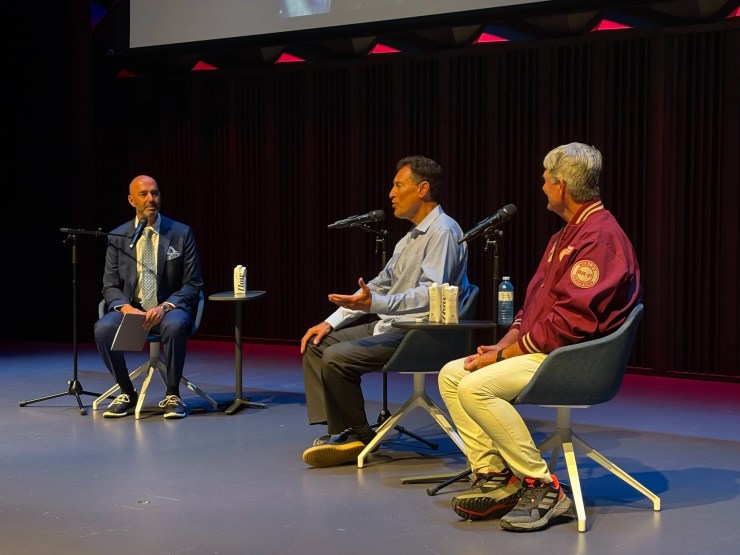
My response? That would make Alberta very happy. Alberta could make a deal with Bill Davis’ Ontario. Why? A Bill Davis Ontario would never tell another province to keep its oil in the ground, to hobble its economy to suit climate obsessions in his own province. A Bill Davis Ontario would support nation-building projects like trans-Canada pipelines not forcing Alberta to sell their oil at a discount to the U.S. A Bill Davis Ontario would never support gun seizures from law-abiding owners.
With respect, Steve, the Bill Davis Ontario is no more. There is no deal to be made at the moment. It is a place captured by the globalist fevers of Great Thunberg climate. It is a province in the thrall of liberal indigenous guilt marinated by its teachers and media. It is a province whose real-estate bubble is poisoning the national economy.
It is a province where politicians and leaders struggle to define a woman. Worst of all, Ontario returned an incompetent trust fund flibberty-gibbet not once, but three times as prime minister. The damage to the nation has been incalculable. Now they’ve elected his economic advisor.
And yet many of our Eastern friends believe that we are the ones who’ve have changed. They tell us we have drunk the cowboy Kool-aid and are now irredeemable. What they mean is, you’re become a traitor to your class. “Down the rabbit hole”. Cast out for being a Bill Davis centrist.
But we have not changed. Much of Alberta’s culture has not changed significantly, despite an NDP episode in government from 2012-15. Bill Davis, who died in 2021, would not find much change outside of the immigrants dropped on it by Justin Trudeau were he to visit today.
But eastern Canada? The whiplash changes might best be summed up by Vince Gasparro, the Liberal MP for a midtown Toronto riding, claiming that Canada’s economy is swell compared to other nations. To which the interim parliamentary budget officer Jason Jacques said just because someone else is 450 pounds and sick doesn’t mean an obese 350-pound person is healthy.

Forecasting a conservative $68.5 billion deficit, Jacques called the economy “unsustainable” and said the nation is at the precipice. “We’re at a point where, based upon our numbers, things cannot continue as they are, and I think everybody knows that,” Jacques said, He was immediately attacked by Liberal bot-world claiming he’s angling for a job with the Conservatives.
The closing of the Laurentian mind reflects what happened to the NDP, the party of Tommy Douglas. Once a national lean-left collection of union workers, farmers, culture figures and academics, it took its lead from the avuncular Ed Broadbent, Audrey McLaughlin and even Jack Layton. Socialist with a friendly face. The leaders calmed the Marxist fevers of their radical fringe.
Then, in the aftermath of Layton’s death, the party convulsed. The union workers and farmers were pushed out by radicals drunk on virtue. Under the DEI hire Jagmeet Singh they purged common sense, leaving Liberals to scoop up their less unhinged members. The survivors of Jagmeet wore keffiyehs in Parliament and predicted environmental doom. The party became irrelevant in 95 percent of the nation.
Their reward was a descent from 103 seats in the 2011 election to non-party status with just seven seats and six percent of the vote this year. While they make noises of relevance, they are now like the Monty Python “Bring out yer’ dead” skit in Search For The Holy Grail.
Which is gravy for the Carney Liberals who can now talk centre but govern as far left as it wishes. Which the Toronto Star says may soon include criminalizing residential school “denialism.” The author Michelle Good says that questioning the unsupported tales of murdered babies is just like “holocaust denial”.
The NDP collapse mirrors what is happening to the Democratic Party in the U.S. By design or by accident Donald Trump has bludgeoned them into assuming most of the policies that are now putting a torpedo into the NDP. Defending crime, endorsing unfettered illegal immigration, patronizing Hamas and other bad actors on the world stage, Balkan economics. Hollywood preening.
While the reviled Trump remains unrepentant, Democrats continue to sink in the polls. Married to California values they’re at 28 percent approval in the polls, and none of their potential 2028 presidential hopefuls is adding anyone to the base.
So the DEMs leadership intimidates its followers with this fatal equation, claiming to be the party of the future. There are a scarce few who remind their colleagues of what’s been lost. Pennsylvania senator John Fetterman who won his crucial seat despite enduring a stroke during the election run-up, is sounding warnings, however.

“Unchecked extreme rhetoric, like labels as Hitler or fascist, will foment more extreme outcomes,” Fetterman wrote. “Political violence is always wrong — no exceptions. We must all turn the temperature down.”
“Absolutely, it’s a reward for Hamas,” he said after Canada and other nations recognized a Palestinian state. “That’s going to be their narrative. They’re going to claim ‘That’s why we did 10/7. That birthed our nation,’ and I can’t ever give that to them.”

But his fellow party members are too engrossed in Jimmy Kimmel’s veneration at BlueSky, the Woke site, to notice that their base has deserted them. Canada’s liberals looking over the edge still get their reinforcement from like-minded people and a bribed media. But as Jacques says, the end is nigh, and everyone knows it.
Bruce Dowbiggin @dowbboy is the editor of Not The Public Broadcaster A two-time winner of the Gemini Award as Canada’s top television sports broadcaster, his new book Deal With It: The Trades That Stunned The NHL And Changed hockey is now available on Amazon. Inexact Science: The Six Most Compelling Draft Years In NHL History, his previous book with his son Evan, was voted the seventh-best professional hockey book of all time by bookauthority.org . His 2004 book Money Players was voted sixth best on the same list, and is available via brucedowbigginbooks.ca.
Alberta
Ottawa’s Firearms Buyback Plan: Federal Government Puts Provincial Authority In Its Sights
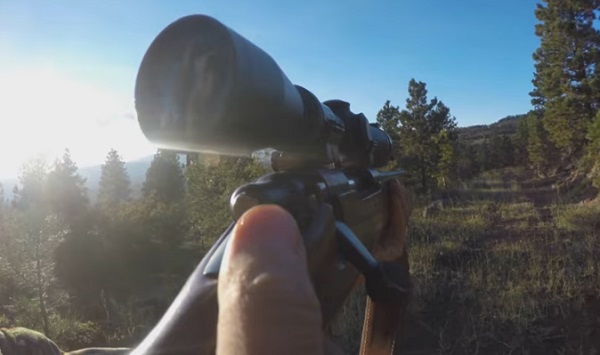
From the Frontier Centre for Public Policy
It’s about politics and provinces are right to refuse to play along
Federal Public Safety Minister Gary Anandasangaree’s leaked admission that Ottawa’s firearms buyback is unenforceable was no slip. It exposed the way federal power is deployed for partisan gain while provinces are left to pay the bill.
The leak matters because it exposes a pattern, not an exception. Ottawa drafts policies to suit its politics and expects provinces to carry the weight. Police budgets, university research chairs, hospital systems and housing markets are treated as levers to be pulled from Ottawa. The effects are felt locally, but the decisions are made elsewhere.
Consider the pattern. The Online Harms Act, rejected more than once, is introduced yet again, as if repetition can substitute for consent. Health care dollars are tied to federal strings that reorder provincial systems with no regard for local capacity. Immigration quotas climb at a pace provinces cannot house or school. Environmental rules descend without negotiation, upending years of co-operative planning. Each measure arrives as an edict. Consultation is reduced to announcement.
Resistance has already begun. Saskatchewan moved early, adopting legislation that makes any federal confiscation program subject to provincial authority, including RCMP operations. In Alberta, Premier Danielle Smith has gone further, declaring flatly: “We will not allow police in Alberta to confiscate previously legal firearms. I have directed two of my ministers to relentlessly defend Albertans’ right to lawful and safe possession of firearms and the right to self-defence.”
Even before the introduction of the Sovereignty Act, Tyler Shandro, then Alberta’s justice minister, announced that the province would not use its police or prosecutors to carry out confiscations. Although former premier Jason Kenney opposed a Sovereignty Act, his government likewise refused to act as Ottawa’s enforcer.
Alberta and Saskatchewan have since given themselves legislative tools, Sovereignty Acts, which assert the right of provinces to decline enforcement of federal laws they judge unconstitutional. These statutes formalize existing constitutional powers. Provinces without Sovereignty Acts have also drawn lines. Ontario has signalled its refusal to help enforce Ottawa’s firearms program.
These positions are lawful, rooted in the Constitution’s division of powers, which assigns the administration of justice and policing to the provinces.
This clarity ought to attract others. Manitoba, with one of the highest proportions of licensed hunters in the country, has strong reason to resist Ottawa’s targeting of lawful gun owners. Communities are not made safer by seizing deer rifles from responsible hunters, nor are public services improved by diverting scarce provincial resources into a program that federal ministers concede will not work. Manitoba would do well to follow Alberta and Saskatchewan in defending its jurisdiction, whether through a Sovereignty Act or by refusing to play Ottawa’s game.
The point is practical. Prairie provinces cannot spare rural detachments to seize hunters’ rifles because the Liberal caucus fears losing seats in Montreal. They cannot put their power grids at risk to meet Ottawa’s timelines while households absorb higher bills. Universities cannot be turned into federal policy pilot projects. Provinces exist to govern their own communities, not to absorb the fallout of federal experiments.
The genius of federalism lies in the division of authority, which encourages compromise and minimizes tyrannical imposition. Ottawa governs in its sphere, provinces in theirs. Where the two overlap, cooperation must be negotiated, not imposed. Sovereignty Acts sharpen that principle. They remind Ottawa that partnership is earned, not dictated.
What Anandasangaree’s admission exposed was not only the cynicism of one firearms program. It revealed a method of governing: federal power deployed for partisan gain, with provinces reduced to instruments. That cannot endure. Canada was never meant to be a chain of command. It was built as a contract—one that requires respect for provincial authority.
Provinces that refuse to carry out Ottawa’s politically motivated projects are not weakening Canada; they are enforcing its terms.
Marco Navarro-Genie is vice-president of research at the Frontier Centre for Public Policy and co-author, with Barry Cooper, of Canada’s COVID: The Story of a Pandemic Moral Panic (2023).
-
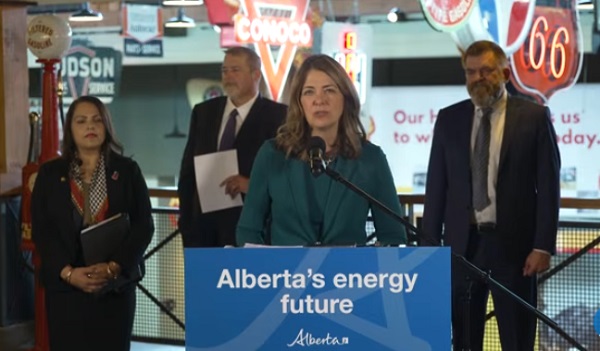
 Alberta1 day ago
Alberta1 day agoWith no company willing to spearhead a new pipeline under federal restrictions, Alberta takes the lead
-

 National2 days ago
National2 days agoCanada’s birth rate plummets to an all-time low
-

 espionage2 days ago
espionage2 days agoNorth Americans are becoming numb to surveillance.
-
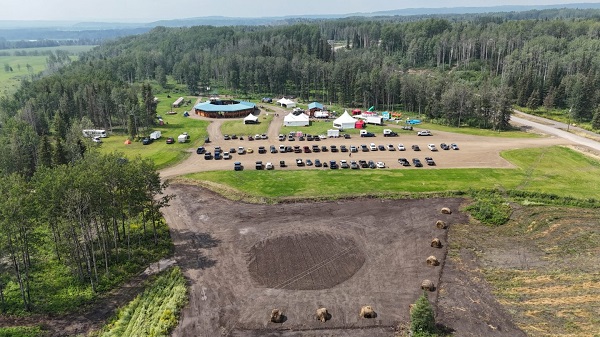
 Alberta1 day ago
Alberta1 day agoHalfway River First Nation makes history with Montney natural gas development deal
-

 Crime2 days ago
Crime2 days agoPierre Poilievre says Christians may be ‘number one’ target of hate violence in Canada
-

 Business1 day ago
Business1 day agoElon Musk announces ‘Grokipedia’ project after Tucker Carlson highlights Wikipedia bias
-

 Bruce Dowbiggin1 day ago
Bruce Dowbiggin1 day agoThe McDavid Dilemma: Edmonton Faces Another Big Mess
-

 Alberta1 day ago
Alberta1 day agoTaxpayers: Alberta must scrap its industrial carbon tax


